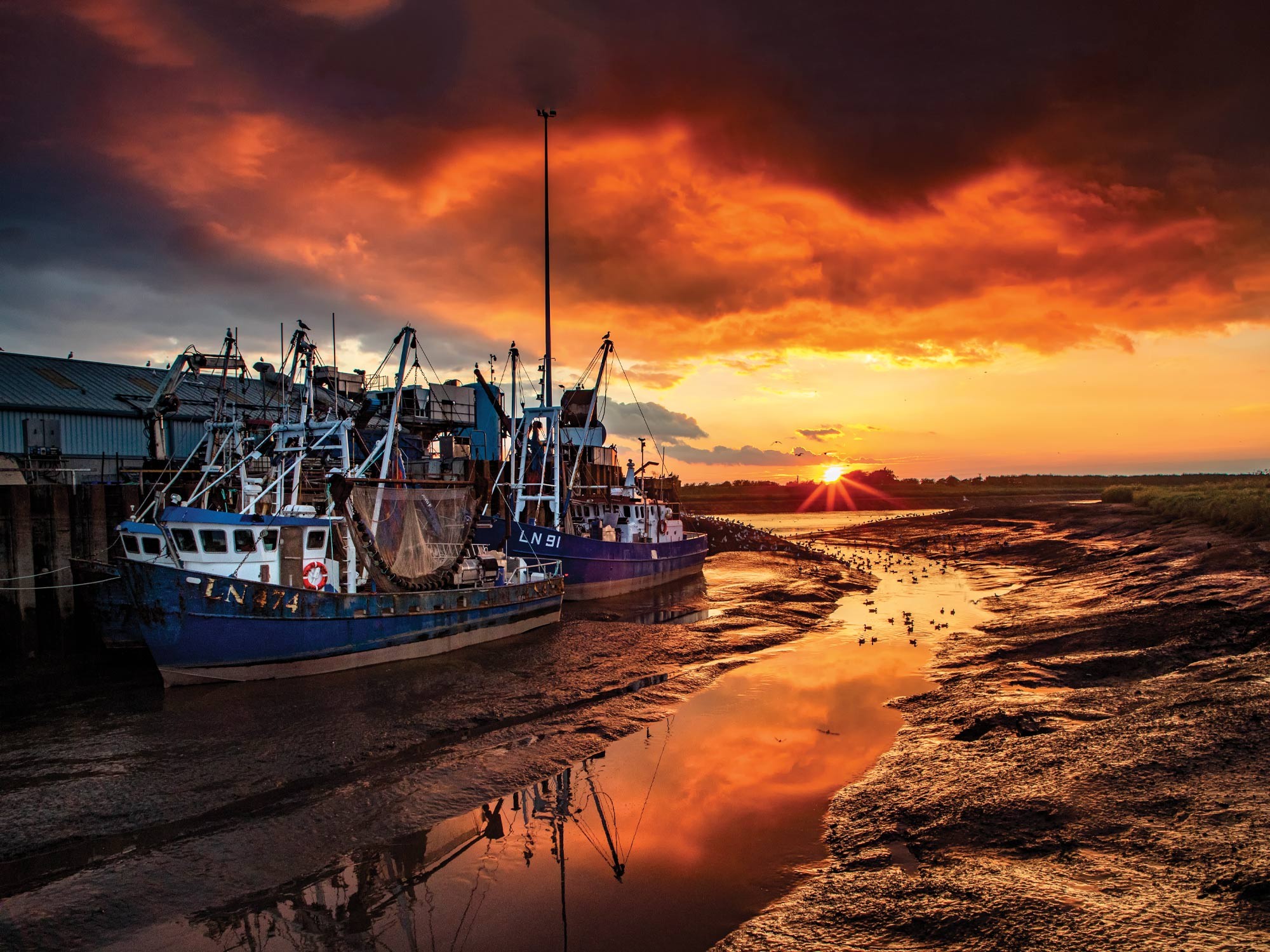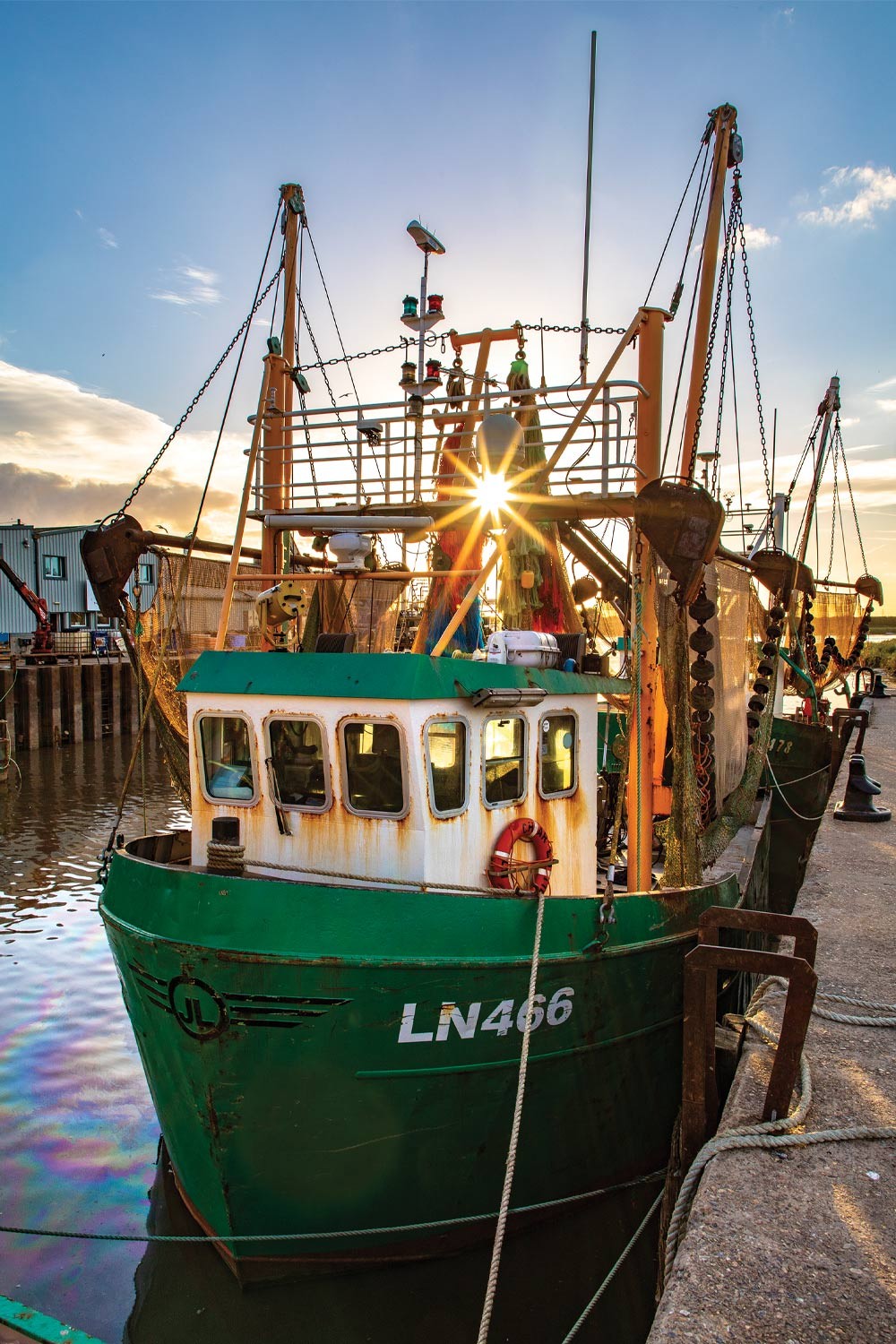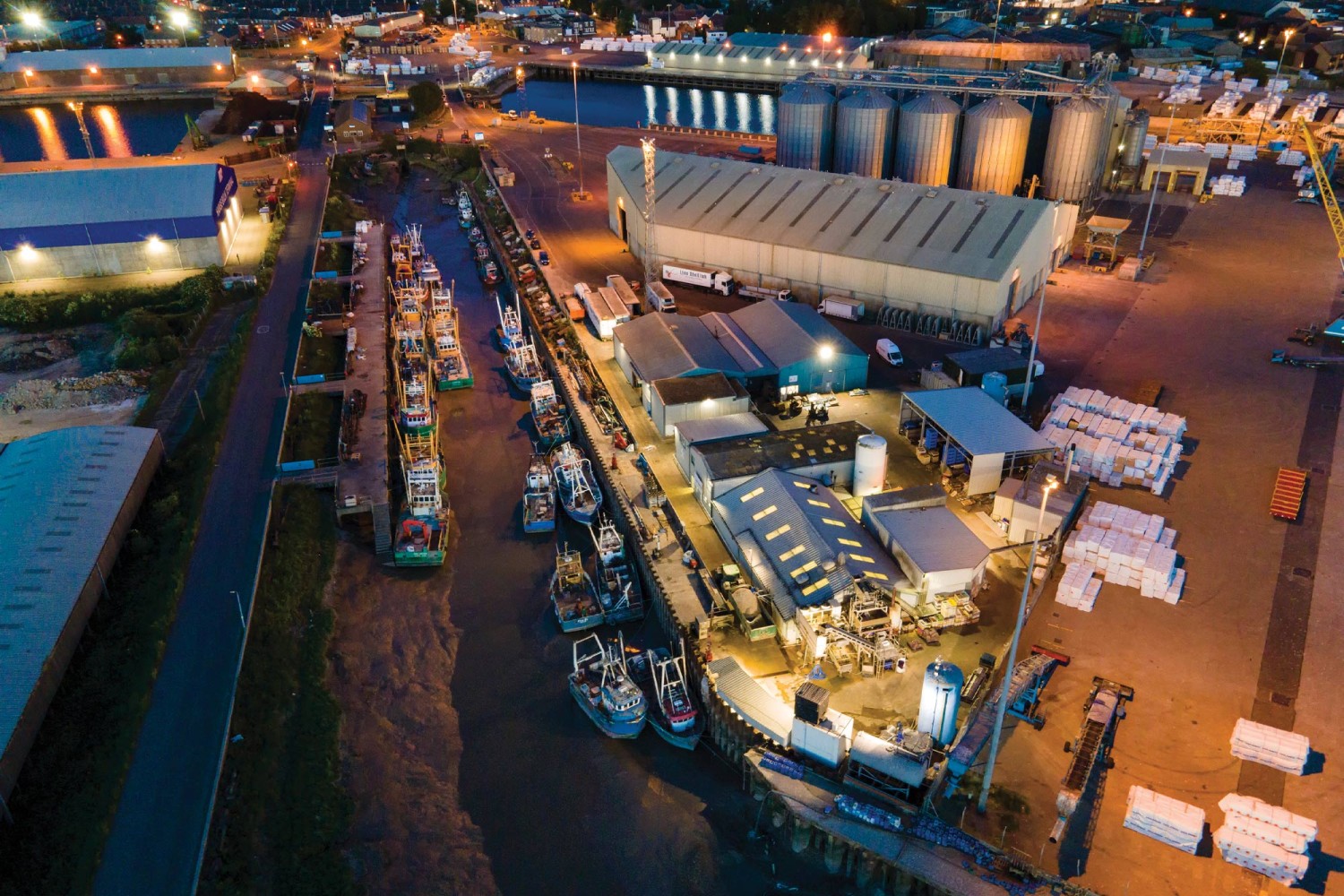
The past and future of a thriving local trade
The historic Fisher Fleet has been a constant in King’s Lynn for centuries - and thanks to inspiring local businesses and a rising demand for seafood, it’s still going strong today...
For over 700 years boats have set off from King’s Lynn’s iconic Fisher Fleet, following the tide down to the mouth of the Great Ouse in search of fantastic fruits of the sea. It’s well-known the town was once a vital trading port for Britain, establishing strong links with the Hanseatic League across Europe and boosting the local economy.
The importance of the Fleet is illustrated by the words of Queen Elizabeth I, who granted local fishermen ‘free and uninterrupted use of the Fisher Fleet for ever and ever.’ At one time hundreds of families would live in the town’s old fishing quarter, the North End, sailing for miles every day to secure a successful catch.
As the years passed and industrialisation swept across the country, the North End community gradually declined before disappearing altogether. Although the size of today’s Fisher Fleet has diminished within the port of King’s Lynn, it still holds a prominent place in the town’s industry and character.
One of Britain’s broadest estuaries, The Wash has been home to various species of fish and rich shellfish beds for centuries. With strong roots in the local fishing industry, family business John Lake Shellfish has been making the most of this abundant environment for nearly three decades - scouring the seabed for everything from crabs, cockles, and mussels to whelks, scallops, and shrimp.
Director, Neil Lake, grew up around the Fisher Fleet and began learning the ways of its trade at a young age.
“My grandfather was a member of the Rake family who were a fixed part of the North End community,” he says. “We’ve been landing catches in King’s Lynn for decades and have farmed at The Wash ever since my father founded John Lake Shellfish in 1994. Fishing is part of who we are and, with the third generation of family now in the business, I feel it always will be.”
The Wash and North Norfolk brown shrimp fishery is the most important in the country, accounting for approximately 95% of UK landings. It operates on a year-round basis, although efforts and catches typically peak from September to December – meaning the past few months have been a busy time for the Fisher Fleet.
“We harvest shrimp using a method known as twin beaming, which involves attaching a large mesh netting to the vessel and towing a pair of beam trawls along in shallow depths,” says Neil. “People tend to have a negative view of trawling, as they picture chains dragging across the seabed - but it’s not like that at all. Our equipment is relatively light, there are no chain mats involved, and nets only comb over the surface of the sand. A lot of the time you can’t even see where we’ve been.”
Once caught, the shrimp are boiled on board to preserve their fresh flavour. They’re then cooled in seawater, separated from debris, and chilled before being brought to shore for further processing.
“We sort shrimp into four different categories using different sized screens,” explains Neil. “The larger grades are sold locally, but most of our catch is exported overseas to countries across Europe.”
Demand is often exceedingly high as, in 2020, The Wash became the first UK brown shrimp fishery to achieve certification from the Marine Stewardship Council.


An international organisation recognising efforts to protect oceans and safeguard future supplies, the MSC sets out sustainability requirements to ensure the long-term health of different species and the environment.
“As local fishermen we’re passionate about conserving the area whilst protecting the economic importance of the fishery,” says Neil. “The MSC accreditation is something we’ve taken great pride in earning and maintaining, and we pass our annual assessments with flying colours.”
“Fishing is more than a career to us, it’s our life, but it’s not easy work.” he continues. “You must be prepared to face long hours, unforgiving weather, and ever-changing challenges – but the rewards are great if you know the job and do it well.”
With the peak season over and winter in full swing, the fisheries are having to work harder than ever to bring back plentiful catches. When temperatures plummet, shrimp either migrate out to sea or delve deeper into the sand – making them increasingly difficult to find.
Come June many boats in Lynn switch to collecting cockles, using propellors to wash the shellfish into a ridge before raking them up at low tide.
As another year commences and preparations begin for the seasons ahead, Neil plans to gradually step back to allow the next generation to drive the family business forwards.
“I’ve spent most of my life at sea, working through the good times and the bad,” he says. “It’s brought a lot of joy and given me a memorable livelihood, but it’s demanding work requiring long hours - and I’m not getting any younger.”
“My son and daughter are now heavily involved with the business and, with their passion and experience, I’m confident we’ll be fishing here for many years to come.”
